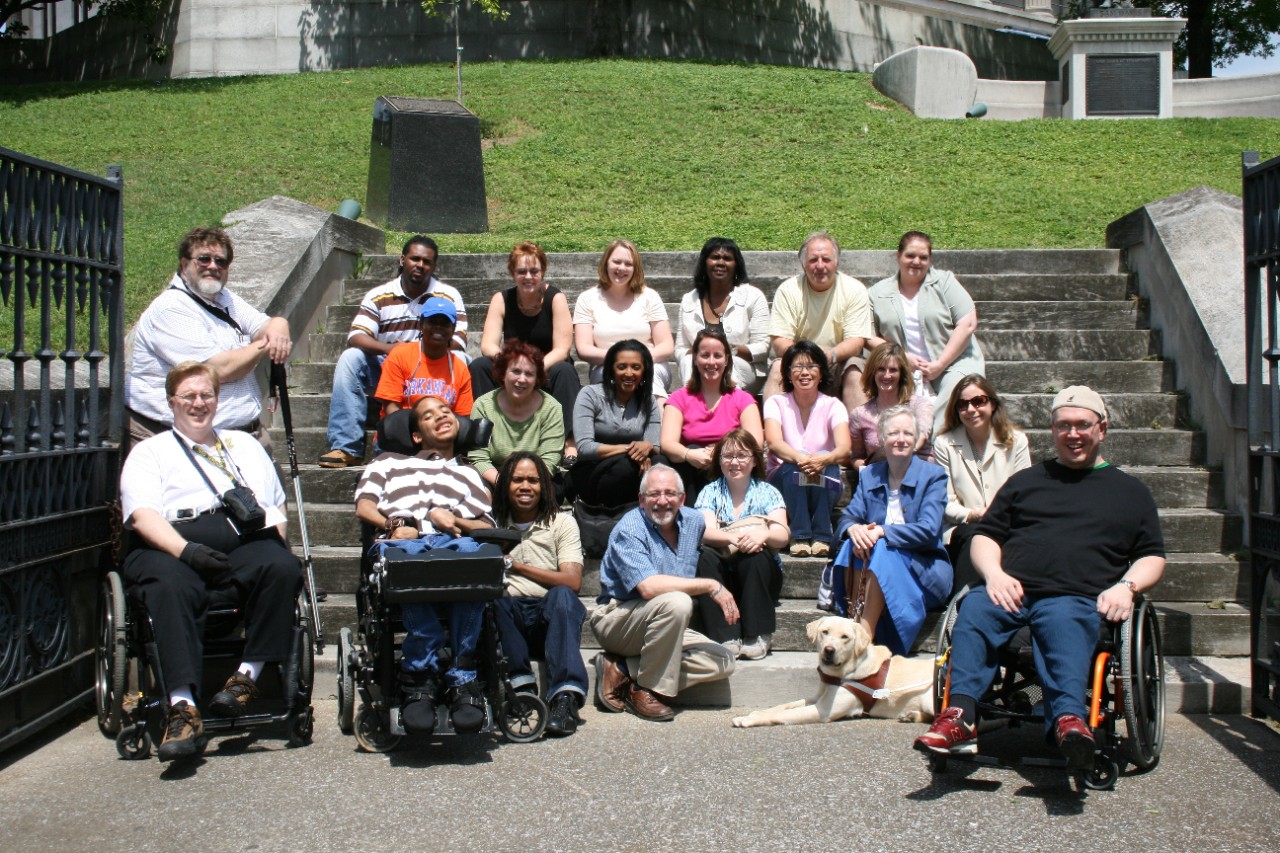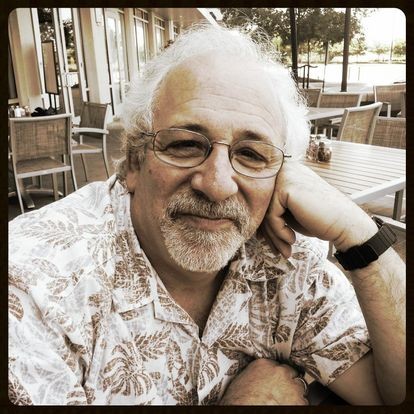Reflecting on 30 Years of Partners in Tennessee: Growth and Expansion
By Ned Andrew Solomon, Director of Tennessee Partners in Policymaking®, 2000 – 2019

I am honored to be asked about my experience as one of the Council’s directors of its Partners in Policymaking Leadership Institute for this special issue of Breaking Ground. Partners is and always has been one of my favorite topics!
Learning curve and mentorship
I was hired by the Council in December of 2000 to lead this program, which had been a core Council program since 1993. I was excited (and nervous) about acquiring some new skills, like overseeing a program budget, handling all aspects of event planning, and developing contracts with participants, speakers, and hotel sites where the weekend meetings would take place. Although I faced a steep learning curve, I did know something about what I was getting into, since I was a Partners participant myself in 1995. The Partners director at that point, Kevin Wright, became my mentor, spending countless, generous hours teaching me the ropes. I will be forever in Kevin’s debt for that priceless education!
A shift in focus
When the Partners curriculum was designed originally by Colleen Wieck at the Minnesota Governor’s Council on Developmental Disabilities, the focus was on informing young parents of kids with disabilities about their rights and how to advocate for their loved ones. My first “ah-ha” moment as the new director was a keynote presentation I attended by Don Meyers about the importance of siblings in the lives of individuals with disabilities. After hearing this speech and bringing what I had learned back to Wanda Willis, the TN Partners program shifted its focus. No longer an intensive training for just parents of young kids, we recognized the need to inform other family members – adult siblings, aunts, uncles, and grandparents, as long as they played a significant caregiving role. We also confirmed our commitment to helping adults with disabilities become advocates for their own lives.
Diversity is essential
That shift opened up our applicant pool exponentially! It wasn’t unusual for us to have 80 applicants for 30 Partners slots. My second goal as director was my desire to have the most diverse Partners classes possible. I worked hard to have a mix of attendees from across the state, comprising different ethnic and cultural backgrounds, representing different disabilities, different ages, and, if possible, near equal numbers of men and women. As a father and stepfather myself of three children with disabilities, I knew the importance of getting fathers and brothers involved. I do believe this was one of my proudest successes as director.
Light bulb moments
I am so grateful for witnessing so many “light bulb” moments during my 19-year tenure as Partners director. It meant the world to me to watch as inspiring speakers struck a nerve with one of the Partners. Sometimes I saw aspects of the Partners “philosophy” around creating inclusive and welcoming environments and providing equal access for all sink in or take hold. I recall a teacher who resigned from serving in a segregated classroom to devote herself to special education advocacy. Another mom realized for the first time that her child was more than capable of making choices and decisions, even though she did not communicate verbally. I remember a father who successfully got legislators to introduce and even pass vital bills that benefited people with disabilities. I remember individuals with disabilities who finally understood the kinds of challenges their parents faced when advocating for their rights. I remember family members who realized, through observations of other Partners, that adults with a wide range of abilities could successfully advocate for themselves, complete home-work assignments, and engage socially with their
non-disabled peers, which gave them hope for the futures of their own loved ones.
How our state is better because of Partners
Thanks to Partners and the Council’s long-term commitment to the program, Tennessee is filled with a large number of informed individuals – family members and people with disabilities – who can educate others, advocate with policymakers and other stakeholders, and serve and represent the “disability” voice on boards, committees, and task forces. Throughout the long history of the Council on Developmental Disabilities, countless Partners grads have helped shape our state’s policies and Council priorities.
Advice for future Partners
Partners is a gift, not to be taken lightly. Partners class members are given access to fantastic presenters and notebooks full of important information. Yes, for a few participants, Partners meant a no-cost weekend at a lovely hotel, eating delicious food, and getting some respite from their complicated lives at home. But for the majority, Partners was life changing. Like any experience, those who give their all – showing up for every training weekend on time, listening intently, and asking great questions – get the most out of it. Long live Tennessee Partners!
